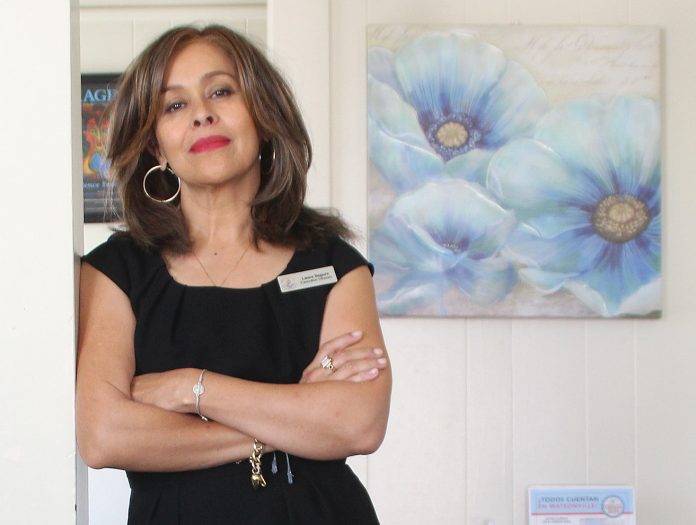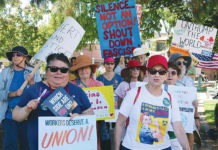SANTA CRUZ COUNTY—Health officials across the globe have implemented shelter-in-place orders to slow the spread of the novel coronavirus, requiring most people to stay in their homes.
But four weeks into Santa Cruz County’s shelter-in-place advisory, advocates of domestic violence victims say that the measures aimed at improving public safety and public health could have the opposite effect. Unable to leave their homes to seek help, they are more likely to suffer further abuse, said Laura Segura, executive director of Monarch Services.
Worse, the order makes it easier for abusers to isolate victims from their families, and stop them from seeking help, Segura said.
“With this shelter-in-place, it makes them more vulnerable because of the isolation that they are already experiencing,” she said. “They are not able to access the networks that they typically use to seek help.”
Since Santa Cruz County Public Health Officer Dr. Gail Newel announced the order on March 16, calls to the organization’s help line have increased “significantly,” Segura said.
The organization’s crisis line has experienced a 45 percent increase in total calls, while its own calls for service have gone up 60 percent, she said.
Monarch’s emergency shelter is at capacity, and advocates are providing hotel vouchers for people who need to escape their homes. One client who asked not to be named told advocates she would rather get coronavirus than stay in their abusive relationship.
“It’s all-hands-on-deck right now,” Segura said. “Everyone is working 24 hours, and we’re all available on call. We’re as busy as can be, but we’re grateful to be able to provide this service for people that are in crisis.”
On top of all that, Segura said that the organization is worried about funding, and that Monarch is looking to apply for grants.
Julie Macecevic, executive director of the Walnut Avenue Family and Women’s Center, said that her call lines have been “eerily silent.” This can be just as ominous as a flood of calls, she said, since it can mean that victims are unable to seek help.
Macecevic adds that many victims need an excuse to leave their homes—such as taking their kids to school or going to the grocery store—to be able to seek help.
Neither the Santa Cruz County Sheriff’s Department nor Watsonville Police Department reported an uptick in domestic violence calls.
“Domestic violence victims are super controlled by their abusers,” she said.
Macecevic predicts that domestic violence organizations will get flooded with calls for help once the shelter-in-place order lets up.
Katie Ray-Jones, chief executive officer of the National Domestic Violence Hotline, said calls, texts and chats to the hotline remain in the average of 1,800-2,000 per day.
But advocates are seeing an increase in the number of survivors who say their abusive partner is using COVID-19 to further isolate, coerce, or increase fear in the relationship, Ray-Jones said.
Victims’ advocates are also bracing for the financial repercussions of the coronavirus.
With an economic recession on the horizon, victims will be financially less able to leave an abusive situation, Segura said.
“When there are difficult economic times, we see people struggling financially and it creates more stressors in the family to an already vulnerable situation,” she said.
Advocates saw a similar fallout during the economic recession of 2008.
In those situations, victims are frequently left with few options, Macecevic said.
“The biggest reason that survivors return to the homes of their abusers is that they have no means to support themselves,” she said.
Like Macecevic, Segura said that her organization is likely to see more domestic violence calls as the recession drags on.
The most important message, both Macecevic and Segura said, is that confidential help is available 24 hours a day from advocates trained to give advice, offer help and create a safety plan.
“We can walk them through the process,” Segura said.
Anyone who hears or sees a suspected domestic violence situation can also call those numbers for advice.
“This is going to continue on for a while so it’s really important that we come together as a community to get through this and support each other,” Segura said.












